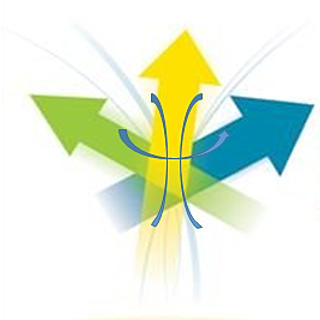Enhancing Leadership Skills for Optimal Organizational Performance
- Linda Harris-Cosby
- Oct 6, 2025
- 3 min read
Effective leadership is the cornerstone of any thriving organization, driving performance, innovation, and employee satisfaction. Enhancing leadership skills is essential for leaders who aspire to foster an environment of excellence and achieve optimal organizational performance. This document explores the strategies and approaches that can be adopted to elevate leadership capabilities.
Understanding Leadership Skills
Leadership skills encompass a wide range of competencies, including emotional intelligence, communication, decision-making, and strategic thinking. These skills enable leaders to inspire their teams, navigate challenges, and drive successful outcomes. At its core, effective leadership is about influence and the ability to motivate others toward a common goal.
Emotional Intelligence
Emotional intelligence (EI) is the ability to recognize, understand, and manage one's emotions, as well as the emotions of others. Leaders with high EI are empathetic, self-aware, and adept at managing interpersonal relationships. Enhancing EI involves:
· Self-awareness: Understanding one's strengths, weaknesses, and emotional triggers.
· Self-regulation: Managing emotions in healthy ways and maintaining composure under pressure.
· Motivation: Cultivating internal drive and setting ambitious goals.
· Empathy: Being attuned to the emotions and needs of others.
· Social skills: Building strong relationships and effective communication.
Effective Communication
Communication is a fundamental leadership skill that affects every aspect of organizational performance. Leaders must be able to convey their vision, provide clear instructions, and foster an open dialogue with their teams. Key strategies include:
· Active listening: Demonstrating genuine interest in team members' perspectives and feedback.
· Clarity and conciseness: Expressing ideas clearly and avoiding ambiguity.
· Non-verbal communication: Using body language and facial expressions to reinforce messages.
· Feedback: Providing constructive feedback to encourage growth and development.
Decision-Making
Effective leaders are decisive and capable of making informed decisions that benefit the organization. Enhancing decision-making skills involves:
· Critical thinking: Analyzing situations and considering all relevant factors.
· Problem-solving: Identifying issues and generating viable solutions.
· Risk assessment: Evaluating potential risks and rewards associated with decisions.
· Collaboration: Involving team members in the decision-making process.
Strategic Thinking
Strategic thinking is the ability to anticipate future trends, set long-term goals, and develop plans to achieve them. Leaders with strong strategic thinking skills can navigate complex environments and drive organizational success. This involves:
· Vision: Developing a clear and compelling vision for the future.
· Planning: Creating detailed plans to achieve strategic objectives.
· Innovation: Encouraging creativity and exploring new opportunities.
· Adaptability: Adjusting strategies in response to changing circumstances.
Implementing Leadership Development Programs
To enhance leadership skills across the organization, it is crucial to implement comprehensive development programs. These programs should focus on continuous learning, practical experience, and mentorship. Key components include:
Training and Workshops
Regular training sessions and workshops provide leaders with opportunities to learn new skills and refine existing ones. These can cover topics such as emotional intelligence, communication techniques, decision-making frameworks, and strategic planning.
Mentorship and Coaching
Mentorship and coaching are invaluable for leadership development. Experienced mentors and coaches can offer guidance, share insights, and provide constructive feedback. This helps leaders to grow and overcome challenges.
Experiential Learning
Hands-on experience is essential for enhancing leadership skills. Opportunities such as project management, team leadership, and problem-solving exercises allow leaders to apply their knowledge in real-world settings.
Feedback and Performance Review
Regular feedback and performance reviews help leaders to identify areas for improvement and track their progress. Constructive feedback from peers, subordinates, and supervisors is crucial for continuous growth.
Measuring the Impact of Leadership Development
To ensure the effectiveness of leadership development programs, it is important to measure their impact on organizational performance. This can be achieved through various methods:
Key Performance Indicators (KPIs)
Establishing KPIs related to leadership effectiveness can provide valuable insights. Metrics such as employee engagement, turnover rates, productivity, and achievement of strategic goals can be used to evaluate the impact of leadership development.
Surveys and Feedback
Conducting surveys and gathering feedback from employees can help assess the effectiveness of leadership initiatives. This provides a comprehensive understanding of how leadership practices affect team dynamics and performance.
Performance Metrics
Analyzing performance metrics before and after implementing leadership development programs can highlight improvements. Metrics such as project success rates, revenue growth, and customer satisfaction are indicative of organizational performance.
Conclusion
Enhancing leadership skills is fundamental to achieving optimal organizational performance. By focusing on emotional intelligence, effective communication, decision-making, and strategic thinking, leaders can inspire their teams and drive success. Implementing comprehensive leadership development programs and measuring their impact ensures continuous growth and organizational excellence. As leaders evolve, they contribute to a positive and productive work environment, fostering innovation and achieving long-term goals.






Comments